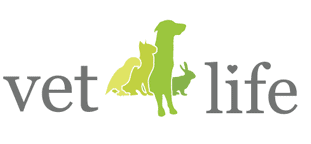Oh Deer! Not the easiest walk in the park
At Vet4Life, we are lucky to have some of the most beautiful parks in close proximity to us; notably Richmond and Bushy Park. These parks offer a wonderful oasis from the urban rush of London, transforming a dog walk into the kind of experience you would have in a rural National Park.
Whether you walk, cycle or drive, you may encounter some of the deer herds which inhabit these parks. Very much used to human presence, you still should keep your distances particularly in the autumn when rutting season occurs.
Rory's story
One of our patients, Rory a gorgeous 5 year old Samoyed, had an unfortunate run in with one of the deers. After being initially seen by an out-of-hours clinic, he presented to Elle, our Head Vet at the Teddington branch, feeling lethargic and breathing abnormally fast. After taking a blood test to gather information on his internal systems, which came back as normal, we proceeded with the anaesthetic. Ensuring there aren’t any hidden problems with body systems which may negatively affect the anaesthetic is key because just like in humans, anaesthetics carry their own risks, separate from the procedures performed.
Chest x-rays were taken revealing a pneumothorax. A pneumothorax is a condition where the lung collapses, mostly due to a trauma, altering the pressure in the chest. This means that the lung cannot fully inflate and the body doesn’t receive as much oxygen. This also explains why he was breathing abnormally - his body was adapting to this oxygen shortage from the lung damage, so was making up for this by breathing faster. Through performing an ultrasound of the chest and abdomen, we made sure there was no other trauma to other body systems which we needed to focus on.
Luckily, there is a solution to this problem! By inserting a tube into the chest, we are able to remove any air which builds up in the chest around the lungs, helping to restore the normal pressure of the chest and allowing the lung to inflate again. Elle then repeated the chest x-rays with a much improved result and breathing pattern for Rory.
Aftercare is just as important. We sent Rory back to be monitored at the out-of-hours clinic for the first critical 24 hours. Pain relief and antibiotics are important to ensure the smoothest, most pain-free recovery without the risk of complications - especially after a wild animal attacks! Rory was very brave and after 2 days of having his chest drained of any excess air, the tube was removed. 9 days after the attack and rechecks every 2 days, Rory made a full recovery and was back to his normal, happy self.
So as picturesque as a stroll around Richmond Park may be, always be wary of their inhabitants! Other points to bear in mind is that deer are wild and can carry parasites which can be transferred to dogs such as ticks. You can always check that the flea treatment you have (such as Nexgard Spectra which we stock) covers for ticks to give you peace of mind when you are out in your idyllic, wooded expeditions.


